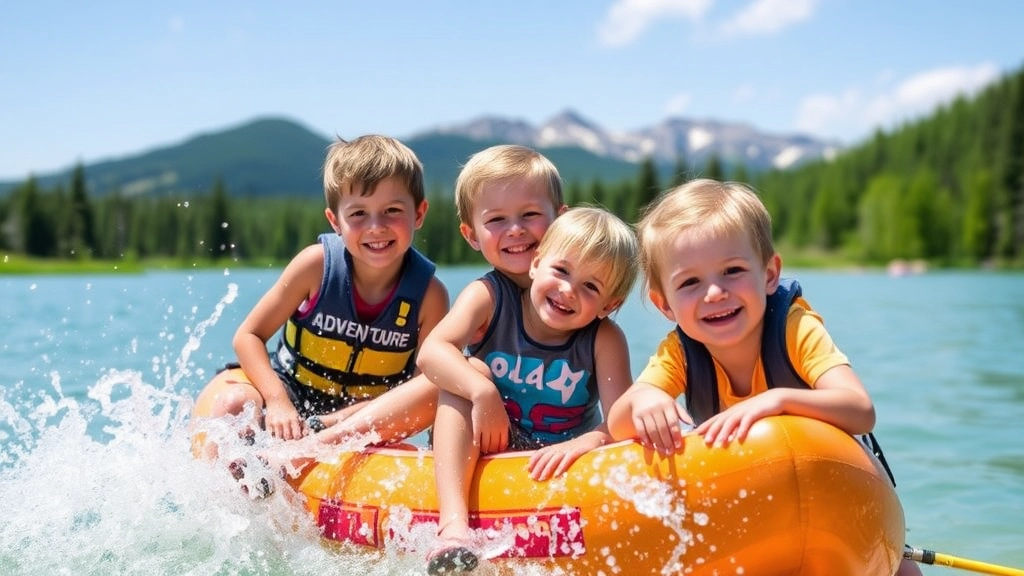Adventure Summer Camps: An Unforgettable Experience
Are you ready to give your kids an unforgettable summer experience? Adventure summer camps offer the perfect blend of excitement, learning, and personal growth. In this article, we’ll explore the top adventure summer camps for kids and teens, dive into the key activities they offer, and discuss the myriad benefits of attending such camps. From building life skills to making lifelong friends, these camps have it all.
We’ll also guide you through the process of choosing the right camp, ensuring safety measures are in place, and preparing your child for this thrilling journey. Plus, we’ll cover the costs involved, share testimonials from camp participants, and provide a comprehensive packing list. Let’s embark on this adventure together and make this summer one to remember!
Top Adventure Summer Camps for Kids and Teens
Alright, let’s dive straight into it. You’re probably wondering, “What are the top adventure summer camps for kids and teens?” Maybe you’re stressed about finding the perfect camp that’s both safe and exciting. I get it. It’s a big decision, and you don’t want to mess it up. So, let’s break it down.
Why Adventure Camps Rock
First off, adventure camps are a brilliant way for kids and teens to break away from their screens and dive into some real-world fun. We’re talking about activities that push boundaries, build confidence, and create memories. Think rock climbing, white-water rafting, zip-lining, and all that jazz.
Top Picks for Adventure Camps
Here are some of the best adventure summer camps that have got rave reviews and tick all the right boxes:
- PGL Adventure Camps – Located across the UK, these camps offer a mix of activities like abseiling, canoeing, and even archery. Perfect for kids who want a bit of everything.
- Camp Wilderness – Set in beautiful forests, this camp focuses on survival skills. Kids learn to build shelters, start fires, and navigate using a compass. It’s like Bear Grylls for the younger crowd.
- XUK Activity Summer Camp – Known for its wide range of activities, from water sports to team-building games. They also have a strong focus on personal development.
- Kingswood Camps – These camps are all about adventure and education. With locations across the UK, they offer activities like zip-lining, climbing, and even coding workshops.
- Outward Bound Trust – Specialising in outdoor education, these camps are designed to challenge kids physically and mentally. They offer expeditions that can really test a kid’s mettle.
What Makes These Camps Stand Out?
- Variety of Activities: Each camp offers a mix of high-adrenaline and skill-building activities.
- Experienced Staff: Trained professionals ensure that your kids are safe while having the time of their lives.
- Focus on Personal Growth: These camps aren’t just about fun; they aim to build resilience, teamwork, and leadership skills.
Real Stories from Campers
Take Sarah, a 14-year-old who attended Camp Wilderness last summer. She was initially terrified of spending a week in the woods. But by the end of it, she was starting fires and building shelters like a pro. Her confidence skyrocketed, and she made friends she’ll never forget.
Or consider Jake, who went to PGL Adventure Camps. He was a bit of a tech addict, always glued to his phone. After a week of abseiling and canoeing, he came back with a newfound love for the outdoors and even joined his school’s adventure club.
Key Activities at Adventure Summer Camps
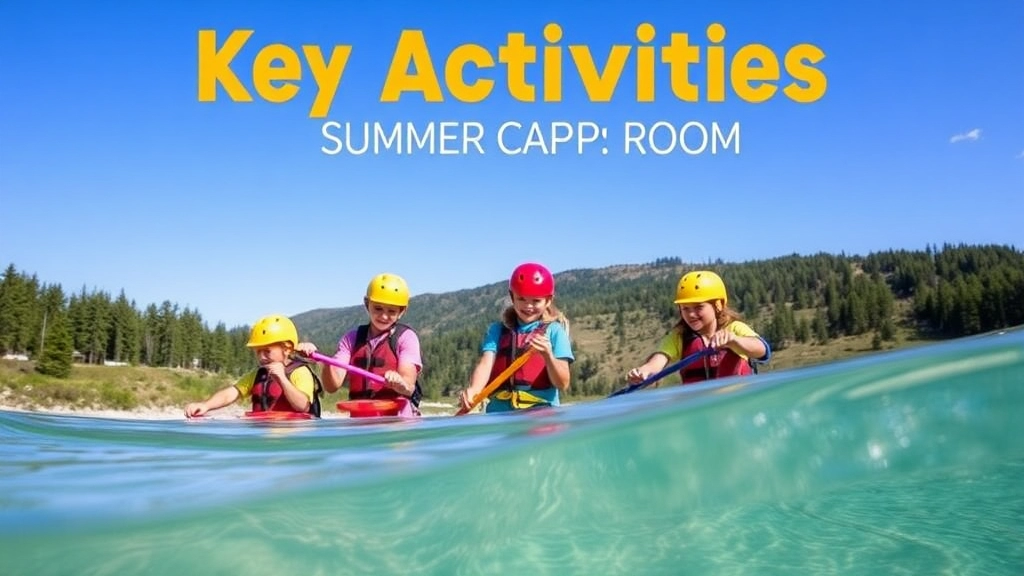
Ever wondered what your kids will actually do at an adventure summer camp?
Let’s dive right in.
Rock Climbing and Abseiling
Rock climbing is a staple at most adventure camps.
Kids learn to navigate vertical walls, building strength and confidence.
Abseiling? That’s the fun part where they get to come back down in style.
Water Sports
Kayaking, canoeing, and paddleboarding—these are the water sports that get kids pumped up.
They’re not just splashing around; they’re learning balance, coordination, and teamwork.
Hiking and Nature Trails
Hiking is more than a walk in the park.
It’s a trek through nature, teaching kids about flora and fauna.
Plus, the views are killer.
Survival Skills
Think fire-starting, shelter-building, and navigation.
These skills turn kids into mini Bear Grylls.
They learn to respect nature and gain a sense of independence.
Team-Building Games
Obstacle courses, scavenger hunts, and trust exercises.
These activities are all about building camaraderie and leadership skills.
Plus, they’re a blast.
Archery and Target Sports
Ever wanted to be Robin Hood?
Archery and target shooting give kids that thrill.
It’s all about focus and precision.
High Ropes and Zip Lining
High ropes courses and zip lines are the ultimate adrenaline rush.
They push kids out of their comfort zones and teach them to face their fears head-on.
Arts and Crafts
Not everything’s about physical exertion.
Arts and crafts let kids tap into their creative side.
They can make friendship bracelets, paint, or even work on some DIY projects.
Why These Activities Matter
These activities aren’t just for fun.
They teach life skills:
- Resilience
- Teamwork
- Leadership
- Problem-solving
And they’re a great way to make lifelong friends.
Benefits of Attending an Adventure Summer Camp
Alright, let’s dive straight into it. Why should you even consider sending your kid to an adventure summer camp? What’s in it for them? Let’s break it down.
1. Building Life Skills
First off, adventure camps are a goldmine for life skills. We’re talking teamwork, leadership, and problem-solving. Your kid isn’t just climbing walls or paddling kayaks; they’re learning how to work with others, lead a group, and solve real-world problems. Imagine them coming back home with:
- Enhanced communication skills
- Better decision-making abilities
- Improved leadership qualities
2. Physical Fitness
Let’s be real, kids today spend way too much time glued to screens. Adventure camps get them moving. Whether it’s hiking, swimming, or rock climbing, these activities boost their physical health. And hey, a fit kid is a happy kid.
- Improved cardiovascular health
- Increased stamina and strength
- Better coordination and balance
3. Boosting Confidence and Self-Esteem
There’s something magical about conquering a fear, like zip-lining across a canyon or reaching the top of a climbing wall. These experiences are massive confidence boosters. Your kid will come back feeling like they can take on the world.
- Increased self-confidence
- Better self-esteem
- Sense of achievement
4. Making Lifelong Friends
Adventure camps are a melting pot of kids from all walks of life. This is where lifelong friendships are forged. Your child will learn to interact with others, understand different perspectives, and build social skills that are crucial in today’s world.
- Enhanced social skills
- Exposure to diverse cultures and backgrounds
- Lifelong friendships
5. Unplugging and Reconnecting with Nature
Let’s face it, kids need a break from technology. Adventure camps offer the perfect opportunity to unplug and reconnect with nature. It’s a digital detox that can do wonders for their mental health.
- Reduced screen time
- Increased appreciation for nature
- Better mental well-being
6. Learning New Skills
From survival skills to first aid, adventure camps are packed with opportunities to learn something new. These are practical skills that could come in handy in everyday life.
- Basic survival skills
- First aid knowledge
- Outdoor cooking and camping skills
Real Stories, Real Impact
Take it from Sarah, a mum who sent her 12-year-old to an adventure camp last summer. “My son came back a different person. He was more confident, more independent, and he couldn’t stop talking about the friends he made and the activities he did. It was worth every penny.”
For more insights on choosing the right camp and preparing your child, check out our detailed guides on Top Summer Sports Camps in Jacksonville, FL and Summer Camp Outfits: Essential Tips & Ideas.
How to Choose the Right Adventure Summer Camp
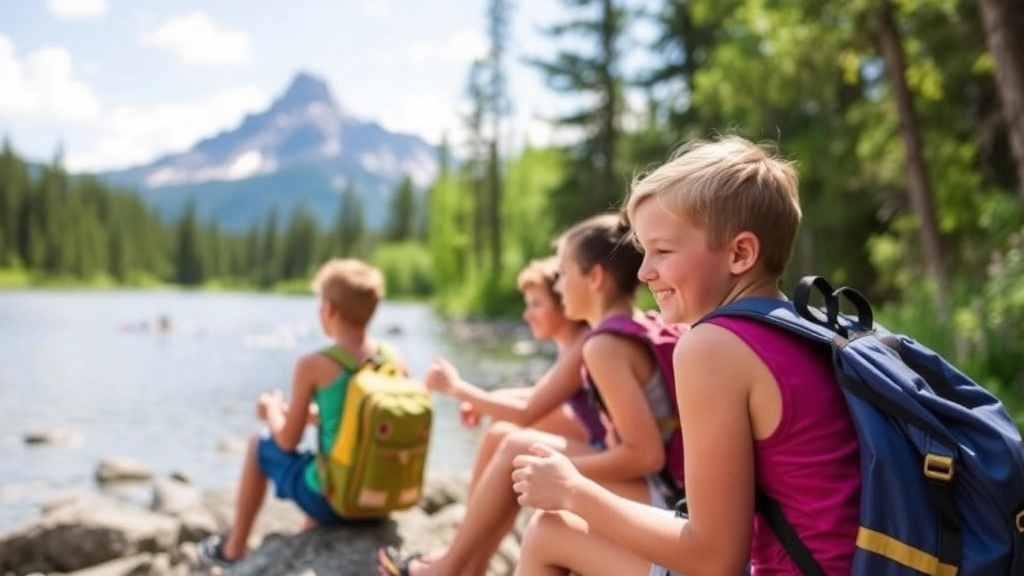
So, you’re thinking about sending your kid to an adventure summer camp? Great choice! But how do you pick the right one? It’s a big decision, and you’ve probably got a ton of questions.
What activities do they offer?
First things first, what does your kid like to do?
- Hiking?
- Rock climbing?
- Kayaking?
Make a list of activities they’re interested in. Then, match that list with what the camp offers.
Age Groups and Skill Levels
Not all camps are created equal. Some are for younger kids, others for teens. Check if the camp groups kids by age or skill level. You don’t want your 7-year-old stuck with 15-year-olds, right?
Camp Reputation and Reviews
Do your homework. Google the camp name + “reviews.” Look for testimonials from other parents. Are the reviews mostly positive? Any red flags?
Safety Measures
Safety first. Check the camp’s safety protocols. Do they have trained staff? What’s the staff-to-camper ratio? Are there medical facilities on-site?
Location and Duration
How far is the camp from home? Is it a day camp or overnight? How long is the camp session? These are all things to consider.
Cost and Budget
Adventure camps can be pricey. What’s your budget? Are there any hidden fees? Do they offer scholarships or discounts?
Camp Philosophy
Every camp has a different vibe. Some focus on team-building, others on individual skills. What’s the camp’s mission? Does it align with what you want for your child?
Ask for Recommendations
Talk to other parents. Get their take on camps their kids have attended. Word of mouth can be super helpful.
Visit the Camp
If possible, visit the camp beforehand. Meet the staff. Check out the facilities. It’ll give you peace of mind.
Trust Your Gut
At the end of the day, trust your instincts. If something feels off, it probably is. You know your kid best.
Safety Measures and Protocols at Adventure Camps
Worried about your child’s safety at adventure summer camps? You’re not alone. It’s a common concern for many parents. Let’s break down the safety measures and protocols that top adventure camps have in place to ensure your child’s well-being.
Comprehensive Safety Protocols
Adventure camps are all about fun, but safety is the number one priority. Here’s what you can typically expect:
- Trained Staff: All camp staff undergo rigorous training. This includes first aid, CPR, and emergency response. Many adventure camps also have certified lifeguards and wilderness first responders on-site.
- Regular Drills: Camps conduct regular safety drills for fire, water, and other emergencies. These drills ensure that both staff and campers know what to do in case of an emergency.
- Health Checks: Before camp starts, many camps require health forms and medical history. Some even have daily health checks for campers to catch any issues early.
Specific Safety Measures
Different activities come with different risks, so camps tailor their safety measures accordingly:
- Water Activities: Life jackets are non-negotiable for activities like kayaking, canoeing, and swimming. There are always lifeguards on duty, and swimming areas are clearly marked.
- Climbing and Rappelling: Helmets, harnesses, and other safety gear are mandatory. Instructors are always present to guide and supervise.
- Hiking and Camping: Campers are never alone. They hike in groups with at least one adult. Camps also use the buddy system to ensure no one gets lost or left behind.
Real-life Examples
I remember chatting with a camp director who shared an incident where a camper sprained an ankle during a hike. Thanks to the camp’s protocols, the situation was handled smoothly. The staff immediately provided first aid, contacted the parents, and ensured the camper received proper medical attention without causing a panic.
What to Ask Before Enrolling
When choosing a camp, don’t hesitate to ask about their safety measures. Here are some key questions:
- What safety training do the staff undergo?
- How do you handle medical emergencies?
- What are your protocols for specific activities?
- How do you communicate with parents during emergencies?
For more detailed information on selecting the right camp, check out our Parent’s Guide to Summer Camps with Transportation. If you’re considering a camp for younger children, our Complete Guide to Summer Camps for 3-Year-Olds might be helpful.
Preparing Your Child for an Adventure Camp Experience
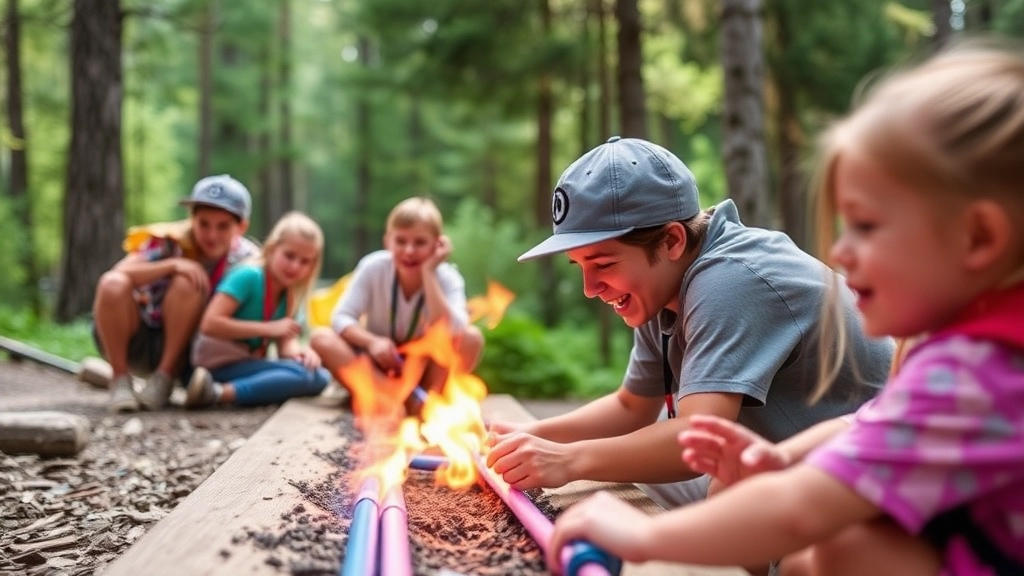
Worried about sending your kid to an adventure camp?
I get it.
It’s a big step.
But, let’s break it down so it’s not so daunting.
Why Adventure Camp?
First, why even consider it?
Adventure camps can build confidence, independence, and social skills.
It’s not just about fun; it’s about growth.
Talk About It
Start with a chat.
Ask your child:
- What excites them?
- What scares them?
Address their worries.
Maybe they’re nervous about making friends or trying new activities.
Get Familiar
Visit the camp’s website.
Look at photos, read about the activities, and watch any videos they have.
Knowing what to expect makes it less scary.
Practice Makes Perfect
Try a mini camping trip at home.
Set up a tent in the garden.
Cook a meal outside.
It’s a fun way to get them used to the idea.
Packing Together
Involve your child in packing.
Make a list:
- Clothing: Durable and comfy
- Gear: Sleeping bag, torch
- Essentials: Toiletries, sunscreen
Packing together gives them a sense of control.
Encourage Independence
Teach them:
- How to manage their belongings
- Basic first aid
- Simple cooking skills
These are useful, not just at camp but in life.
Stay Connected
Discuss how you’ll stay in touch.
Will there be phone calls? Letters?
Knowing when they’ll hear from you can ease anxiety.
Stories from the Field
A friend’s kid went to camp last year.
She was shy, but came back buzzing with stories and new pals.
It’s common.
Kids often surprise us with how well they adapt.
Cost and Budgeting for Adventure Summer Camps
Worried About the Cost of Adventure Camps? Let’s Break It Down.
Hey, if you’re like most parents, you’re probably asking, “How much is this going to set me back?” Adventure summer camps can seem pricey, but let’s dig into it so you can plan smartly.
Understanding the Price Tag
First off, let’s get real about what you’re paying for. Adventure camps aren’t just about sending your kid off to have fun. They offer:
- Expert Guidance: Trained professionals who ensure your child learns and stays safe.
- Specialised Equipment: From climbing gear to kayaks, it’s all included.
- Meals and Accommodation: All meals and a comfy place to crash.
Breaking Down the Costs
Here’s a rough idea of what you might expect to pay:
- Day Camps: £200 – £500 per week
- Overnight Camps: £500 – £1,500 per week
- Specialised Camps (like surfing or rock climbing): £1,000 – £2,500 per week
Budgeting Tips for Adventure Camps
Now, let’s talk about how to make this work for your wallet:
- Early Bird Discounts: Book early to snag lower rates.
- Scholarships and Grants: Many camps offer financial aid. Check out our guide on how to secure funding for summer camps.
- Payment Plans: Spread out the cost over several months.
- Family Discounts: Got more than one kid? Some camps offer deals.
Real Stories: Making It Affordable
I chatted with a mum who managed to send her twins to a top-notch camp without breaking the bank. She used a combination of early booking discounts and a payment plan. Her advice? “Start planning in January!”
Weighing the Value
Think about it: you’re investing in your child’s growth and confidence. The skills they gain and friendships they form are priceless. Plus, you get a bit of peace and quiet, right? For more tips, explore our guide to summer camp activities that enhance learning and fun.
Testimonials and Reviews from Camp Participants
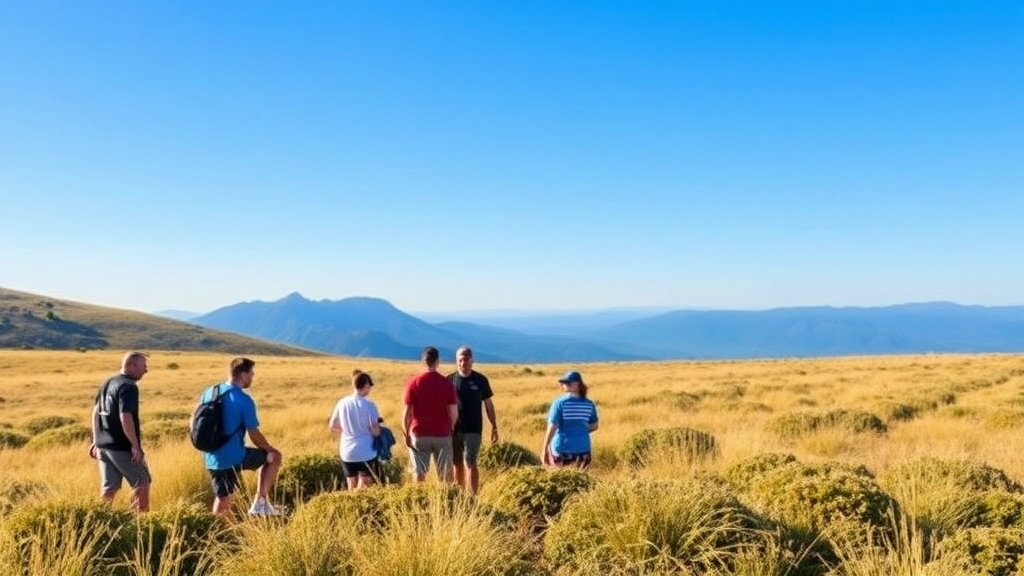
Wondering if an adventure summer camp is worth it?
You’re not alone.
Let’s dive into real stories from those who’ve been there.
“What was it like?”
I get this question all the time.
So, let’s hear from the kids and teens who’ve experienced it first-hand.
Real Stories, Real Experiences
Sarah, Age 12:
“I was so nervous at first. I’d never been away from home for so long. But the zip-lining? Absolutely epic. I made friends from all over and learned how to kayak. By the end, I didn’t want to leave.”
Tom, Age 15:
“Honestly, I thought it would be boring. But it was anything but that. Rock climbing was a game-changer for me. I felt like a superhero scaling those walls. And the campfire stories? Legendary.”
Parents’ Perspectives
Emma, Mum of Two:
“I was worried about safety. But the camp had top-notch protocols. My kids came back more confident and independent. Worth every penny.”
John, Dad of a Teen:
“My son was glued to his phone before camp. After a week in the wilderness, he couldn’t stop talking about his adventures. Best decision ever.”
Why These Testimonials Matter
- Authenticity: Real feedback from real people.
- Relatability: Shows different perspectives—kids, teens, and parents.
- Reassurance: Eases common worries about safety and value.
Common Themes in Reviews
- Confidence Boost: Kids come back more self-assured.
- New Skills: From kayaking to rock climbing, they learn it all.
- Lifelong Friendships: Bonds formed at camp often last a lifetime.
What to Look For in Reviews
- Activity Variety: Are there enough activities to keep your child engaged?
- Safety Protocols: Do parents mention feeling secure about their kids’ wellbeing?
- Staff Quality: Are the camp leaders praised for their skills and friendliness?
Packing Essentials for Adventure Summer Camps
Alright, let’s cut to the chase. Packing for an adventure summer camp can be a bit of a head-scratcher. You’re probably wondering, “What on earth does my kid need to bring?” or “How do I make sure they have everything without overpacking?” Trust me, I get it. It’s a balancing act between being prepared and not turning your kid into a pack mule. Let’s dive into the essentials, so you can pack like a pro and ensure your child has everything they need for an epic camp experience.
The Must-Haves
First off, let’s break down the absolute essentials. These are the items your kid cannot go without:
- Clothing: Think layers. Weather can be unpredictable, so pack a mix of t-shirts, long sleeves, shorts, and trousers. Don’t forget a sturdy waterproof jacket and a warm hoodie or fleece.
- Footwear: A good pair of hiking boots is a must. Add some comfortable trainers and a pair of sandals for downtime.
- Sleep Gear: Sleeping bag (rated for the season), a cosy pillow, and a sleeping mat if the camp doesn’t provide one.
- Toiletries: Toothbrush, toothpaste, biodegradable soap, shampoo, and a quick-dry towel. Toss in some sunscreen and insect repellent too.
- First Aid Kit: Basic stuff like plasters, antiseptic wipes, and any personal medication.
Pro Tips for Packing
Here’s where we get into the nitty-gritty. These tips will make sure your kid is ready for anything:
- Label Everything: Camps are notorious for lost items. Use a permanent marker or name tags to label clothes, gear, and even toiletries.
- Pack Light, Pack Smart: Use packing cubes or ziplock bags to organise items. This makes it easier for your kid to find what they need without emptying the entire bag.
- Waterproof Bags: Invest in a few waterproof bags or dry sacks. They’re lifesavers for keeping clothes and electronics dry during unexpected downpours.
Extras That Make a Difference
These items aren’t strictly necessary, but they can make the camp experience a whole lot smoother:
- Headlamp or Torch: Essential for late-night bathroom trips or reading in the tent.
- Reusable Water Bottle: Hydration is key. A sturdy, leak-proof bottle is a must.
- Pocket Knife: Handy for older kids, but make sure it’s allowed by the camp.
- Notebook and Pen: Great for jotting down memories or playing games during downtime.
Real Stories, Real Solutions
Let me share a quick story. Last summer, my mate’s kid forgot to pack enough socks. Sounds trivial, right? But after a few days of hiking, those socks were a game-changer. Moral of the story: pack extra socks and undies. They take up minimal space but can save a lot of headaches.
Got more questions about packing for adventure summer camps? Check out our summer camp packing list essentials section for more tips and tricks.
For a comprehensive guide on what to expect from different types of camps, visit our ultimate guide to summer camp sleepaway fun.
Frequently Asked Questions About Adventure Summer Camps
Adventure summer camps can be a blast, but let’s be realâthere are always a ton of questions floating around. So, let’s dive into the nitty-gritty and answer the most burning questions you might have.
What Activities Will My Kid Be Doing?
Your child will be doing a variety of activities that could include:
- Rock climbing
- Kayaking
- Hiking
- Archery
- Team sports
These activities are designed to be fun but also to build skills and confidence.
How Safe Are These Camps?
Safety is a top priority. Camps usually have:
- Trained staff
- Strict safety protocols
- First aid kits
- Emergency plans
Always check the camp’s safety measures before signing up.
What Should My Kid Pack?
Packing can be a headache, but here’s a quick list:
- Comfortable clothing
- Sturdy shoes
- Swimwear
- Sunscreen
- Bug spray
- Water bottle
Check the camp’s specific packing list for any unique requirements. For more tips, check out our summer camp clothing essentials guide.
How Much Does It Cost?
Costs can vary widely. On average:
- Day camps: £100-£300 per week
- Overnight camps: £500-£1,500 per week
Look for early bird discounts or scholarships to save some cash. For a list of affordable options, see our article on Kroc Center summer camps.
What If My Kid Gets Homesick?
Homesickness is common. Camps usually have:
- Supportive staff
- Buddy systems
- Fun activities to keep kids engaged
A quick tip: Send them with a small comfort item from home.
Are There Any Age Restrictions?
Most camps cater to specific age groups:
- Kids: 7-12 years
- Teens: 13-17 years
Always check the camp’s age requirements before enrolling.
Can Parents Visit?
Some camps have visiting days, while others don’t. It’s best to:
- Check the camp’s policy
- Plan your visit accordingly
What If My Child Has Dietary Restrictions?
Most camps can accommodate dietary needs. Make sure to:
- Inform the camp in advance
- Provide any necessary medical documentation
How Do I Stay Updated on My Child’s Progress?
Many camps offer:
- Regular updates via email or app
- Photo galleries
- Weekly newsletters
Check what communication methods the camp uses.
What If My Kid Doesn’t Like It?
It’s rare, but it happens. Camps usually offer:
- Flexible refund policies
- Trial periods
Make sure to understand the camp’s cancellation policy.
FAQs about Adventure Summer Camps
What types of activities are usually offered at adventure summer camps?
Adventure summer camps typically offer a wide range of activities including rock climbing, abseiling, water sports like kayaking and paddleboarding, hiking, survival skills, team-building games, archery, high ropes, zip lining, and arts and crafts.
Why are these activities important for kids?
These activities are not just for fun; they teach valuable life skills such as resilience, teamwork, leadership, and problem-solving. They also help kids build confidence and make lifelong friends.
How can I choose the right adventure summer camp for my child?
Consider factors such as the activities offered, age groups and skill levels, camp reputation and reviews, safety measures, location, duration, cost, camp philosophy, and recommendations from other parents. Visiting the camp beforehand can also be helpful.
What should I do to prepare my child for an adventure camp?
Start by discussing the camp experience with your child to address their concerns and excitement. Familiarize them with the camp by visiting its website and looking at photos and videos. Practice camping at home, involve them in packing, teach them basic skills, and discuss how you’ll stay in touch during the camp.
What are some common concerns parents have about adventure summer camps?
Parents often worry about safety, the quality of the camp staff, and whether their child will enjoy the activities. Checking the camp’s safety protocols, reading reviews, and talking to other parents can help alleviate these concerns.
Are there any testimonials from kids who have attended adventure camps?
Yes, many kids share positive experiences. For example, Sarah, age 12, loved the zip-lining and made new friends, while Tom, age 15, found rock climbing exhilarating and enjoyed the campfire stories.
What do parents say about the benefits of adventure summer camps?
Parents often note that their children return more confident and independent. They appreciate the camp’s safety measures and the variety of activities that keep their kids engaged and excited.
What should I look for in camp reviews?
Look for reviews that mention a variety of activities, strong safety protocols, and high-quality staff. Positive feedback from both kids and parents can provide reassurance about the camp’s value and safety.
References
-
What to Look for in a Summer Camp
-
Best Summer Camps of 2024
-
Choosing the Best Summer Camp for Your Child

